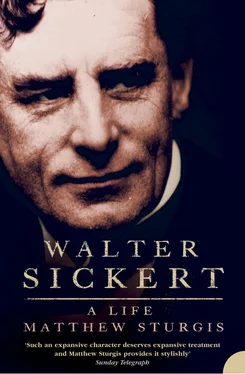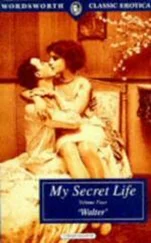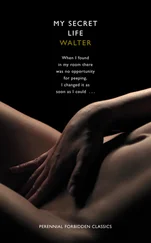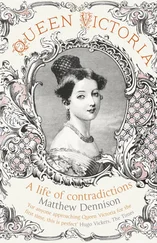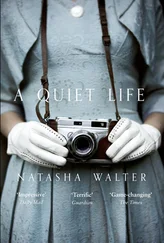At King’s College School in the 1870s the syllabus was rigorously limited. In the ‘Classical Division’ to which Sickert belonged the concentration was on Latin and Greek. The study of these was supplemented by courses in mathematics, English literature, French, and divinity. German and drawing were offered as optional extras, and a ‘course of lectures on some branch of experimental science’ was provided as an afterthought. * It was a system that Sickert came to appreciate. Many years later, when visiting St Felix School, Southwold in the late 1920s to give a lecture on art, he was amazed at the number of subjects being taught. There were at least nine different ones included in the weekly timetable. ‘Tiens!’ he exclaimed. ‘Three subjects are enough. Latin, English and Mathematics. Then the pupils may leave school knowing a little about something which would give them confidence which is so necessary for their future studies, instead of nothing about anything at all.’ 5
The school, presided over by the long-serving Revd G. F. Maclear, had established an excellent academic reputation. There were many good and several excellent teachers. Sickert’s form master was the genial Dr Robert Belcher. Walter soon began to flourish under his tutelage. He already had some grasp of both Latin and Greek, but this deepened under the regime of close reading, ‘prose writing’, and Greek verse composition. Walter developed a real familiarity with – and enduring love for – the language and literature of classical antiquity. Without laying claim to being a scholar, he continued to read – and to misquote – the classical authors with relish throughout his life. His particular favourite was the clear-sighted, unsentimental epigrammist Martial. 6
Sickert, so he claimed, was also ‘naturally and from heredity interested in mathematics’. He would work out geometry propositions on his daily walk to school. 7 But it was in the modern languages that he really excelled. His polyglot upbringing (and the fact that most of his contemporaries ‘took neither French or German classes very seriously’ 8 ) gave him ample opportunity to shine. He won the Upper School French Prize in Michaelmas 1876, and the Upper School German Prize the following term. And at the annual prize-giving, at Christmas 1877, he carried off the Vice-Master’s German Prize. 9
Art was not one of the strengths of King’s College School. Although the great watercolourist John Sell Cotman had taught drawing at the school in the 1830s, and Dante Gabriel Rossetti had briefly been a pupil, they had left no enduring legacy. Art was not part of the curriculum and could only be taken as an extra option at the extra cost of a guinea a term. 10 There is no evidence to suggest that Walter ever studied it. Not that he needed the structure of formal classes to stimulate his interest. He drew incessantly, and achieved some recognition for his work amongst his schoolfellows. On one memorable occasion when he was caught drawing caricatures in class, the form master, instead of punishing him, framed the confiscated picture. 11
Class work, it seems, only ever absorbed so much of Walter’s attention. He was undaunted by the wider stage of his new school, and soon surrounded himself with new friends, among them the school’s leading scholar, Alfred Pollard, and Alfred Kalisch (who became the music critic for the Daily News ). 12 Sickert’s energy and liveliness were captivating, and so were his emerging good looks. One former classmate recalled that even as a schoolboy he had the glamour that attaches to the ‘extremely handsome’. 13 He delighted in doing the unexpected. One of the Japanese boys from Mr Hunt’s school had also moved to KCS and Walter greatly surprised and impressed his new schoolmates by addressing him in Japanese. 14
Amongst his other pranks was a scheme to undercut the school tuck shop by setting up his own doughnut stall at break time. KCS pupils had long been complaining at the quality of the fare provided by Mr Reynolds – the local baker who ran the tuck shop – and at ‘the enormous profits’ that he made from his monopoly. Like many of Sickert’s later commercial ventures, the doughnut stall was not a financial success and was closed down by the authorities. He sometimes claimed that the scam led to his expulsion from the school, but this was an exaggeration. 15 The headmaster was, on the whole, indulgent of Walter’s irregularities. 16 He was mindful perhaps of his contributions to other areas of school life.
Dr Maclear took a particular interest in the end-of-year performances put on as part of the Christmas prize-giving. A mixed programme was presented with scenes not only from Shakespeare and the other English classics but also from Greek, Latin, French, and German dramas – all done in their original languages. Sickert excelled in these. He earned an early fame for his performance in the late-medieval farce L’Avocat Pathelin , in which his French was considered to be ‘perfect’. 17
Although divinity was a compulsory subject, and each day began with a fifteen-minute service in chapel, the atmosphere of the school was not markedly religious. Walter got confirmed while he was there, but he treated the whole matter with ‘genial cynicism’ and, having been rewarded with the gift of a watch, promptly gave up going to church on Sundays with his mother and siblings. 18 It was just one of the ways in which he started to emancipate himself from family life. While Robert and Bernhard retreated home from their respective schools, becoming more dreamy and inward looking, Walter took off in new directions. He made his own friends and ‘lived a life of his own’. 19
He began to explore London. It teemed outside the school gates. Alfred Pollard recalled that to attend KCS was to have it ‘daily borne in on one … that one [was] a citizen of a great city’. 20 A constant tide of human – and animal – traffic passed before the school and through the triple portal of Temple Bar, Wren’s baroque gateway linking the City and the West End – the allied worlds of Business and Pleasure. King’s College School stood, albeit with a certain aloofness, in the world of Pleasure. Despite the nearby presence of the Law Courts, the surrounding area had a hazardous reputation. It was thick with public houses and theatres. The Strand was the most notorious thoroughfare in Central London: no respectable woman would walk down it unaccompanied for fear of being mistaken for a prostitute. North of the school lay Covent Garden, and the disreputable courts and alleys around Holywell Street – centre of the second-hand-book and pornography trades.
For the King’s College School students the pleasures afforded by the area tended to be rather more innocent. As one former pupil remembered, after school (3 p.m. on most days, but 1 p.m. on Wednesdays, and noon on Saturdays) many boys headed off to eat ices at Gatti’s in the Adelaide Gallery, or went to Sainsbury’s, ‘a chemist close to the school who sold splendid iced soda drinks from a fountain’. 21 Sickert, however, was more adventurous and inquisitive. He was, in the words of one schoolfellow, ‘the cat that walked by itself’. ‘He didn’t care to do our things, he was aloof … but he could be wonderfully good company when he was in the mood. Everyone liked to be asked to walk home with him from school. He never invited more than two of us at a time. He knew North London like the back of his hand, he could tell us endless stories about the little streets and byways as we went along and pointed out pictures that we hadn’t seen.’ 22
His journey home would often be broken by a prolonged loiter in Wellington Street, before the office windows of Entr’acte magazine – a review of the contemporary theatrical and music-hall scene. There he could avidly scrutinize the most recent works of the paper’s star artist, Alfred Bryan, that were pinned up for display. 23
Читать дальше
